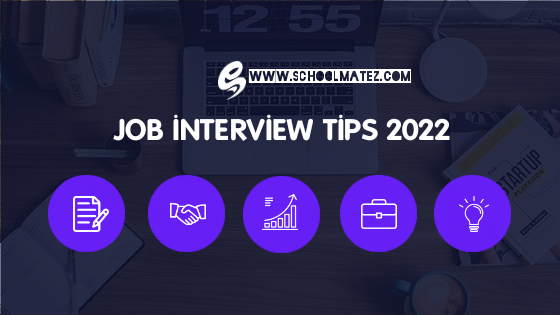If you need a bit of inspiration to help you answer some of the trickier job application form questions take a look at our example responses to get you started
While some sections of a job application form only need straightforward, factual answers, such as your personal details or education history, others will demand you work a little harder.
You may be asked to write a personal statement, or be asked competency-based questions. These require you to discuss specific times when you’ve demonstrated the essential skills and qualities for the role, referring to the job description and person specification outlined in the advert.
For more information on completing a form and what to include, explore how to write a successful job application.
While the precise wording of questions may vary between job application forms, they tend to cover similar ground. Here are ten typical application form questions and answers to help you.
Why do you want to work here?
The employer is trying to figure out your motivations and whether you’ve given serious consideration to your application. You need to show that you’ve done your research and understand exactly what the job entails. Explain how it fits into your long-term career plans.
Example answer:
Your company stood out when I was researching the leading electronics companies in the country. I am aware of your dedication to the development of innovative consumer products and I believe that this role would be the perfect fit considering my strong design background.
Why do you think you are suitable for this role?
You need to describe how your skills, knowledge and experience match the job outline, while also explaining your motivation and goals.
Example answer:
I have always wanted to work as an exhibition designer for a museum that embraces cultural changes and provides a sensory experience for its visitors. My degree helped me to develop key artistic and organisational skills, while the experience that I gained from working at my local museum has been the ideal preparation for a career in this field. I would relish the opportunity to be part of the team that works on the concepts for your upcoming exhibits and collections.
Briefly outline your relevant skills and experience
Even if you haven’t had any direct experience, you can still highlight any transferable skills that relate to the role. Turn your answer into a positive one by making it clear that you want the job in order to gain experience in the area.
Example answer:
Although I haven’t had the chance to gain work experience at an advertising agency yet, I have already created high level concepts that have been used by leading brands such as Marks & Spencer. At university, I was the copywriter for a number of students’ union marketing campaigns and have generated interest in my work through my website, which I designed myself.
Give an example of when you have worked under pressure
You need to prove that you’ve handled deadlines successfully in the past. Describe how you overcame obstacles that you had no control over.
Example answer:
During my work placement last year I faced various conflicting demands on my time due to the fact that my role was inter-departmental. One particular week, the pressures did threaten to get overwhelming as a number of key staff members were off sick. However, this allowed me to show that I could rise to the challenge. I left the company with praise from my peers as I always gave my best no matter what.
What is your greatest achievement?
Choose something outside of your academic life that’s uniquely significant to you. This is an assessment of your attitude and motivations, to find out whether your values are compatible with those of the organisation.
Example answer:
When my mother was diagnosed with a serious illness last year, it was obviously a traumatic and stressful time for the whole family. Even though I hadn’t done any sport since school, I decided to sign up for a run and raise money to increase awareness of the disease. I trained hard for a number of months and kept to a strict eating regime. I managed to raise nearly £3,000 for the charity and finished the race in a time I could never have dreamed was possible.
Give an example of how you made a positive contribution to a team and what the outcome was
The employer is checking that you have experience of working in a cohesive team environment. Describe a scenario where you had to draw on strengths and qualities in order to accomplish a group task. Explain your particular role, how weaknesses were overcome and what you learned.
Example answer:
During my time in the university film society, we decided to run a series of workshops for the local community. My role involved planning the daily activities, ensuring that the intensive course covered everything we wanted to include. While some tasks did overrun, the event was a resounding success with attendees remarking on how well it had been organised.
Describe an occasion when you’ve had to communicate complex information
This is a test of your ability to analyse complicated information effectively, and communicate it in a way that the audience can understand. Set the scene and describe your thinking process in a step-by-step way.
Example answer:
For my scientific research project, I had to present the ideas behind my thinking to the rest of the class. While presentations were common at university, this was a particularly complex proposal. I had to filter the relevant information and summarise my work, delivering this at a level the other students could appreciate and understand.
What is the biggest challenge that you’ve faced and how did you handle it?
The employer will be looking to find out about your attitude to challenges, as well as your ability to problem-solve and overcome obstacles, so you need to provide a significant example that demonstrates your adaptability in this area.
Example answer:
In my summer job working in a busy aftersales department I inevitably had to deal with some tough customers. This was my first real job, and I had to learn to successfully negotiate and interact with many people throughout the working day. On many occasions, I was the only staff member manning the desk so I had to cope with the pressure that this role demanded. I now feel that I am better equipped to handle whatever challenges come my way.
What are your greatest strengths and weaknesses?
Describing your strengths may come more naturally, but when it comes to your weaknesses, it is important to be honest and reveal things you are genuinely looking to improve on. Your answers need to be well-considered and tailored towards the role you are applying for. Show them that you are actively looking to learn and grow.
Example answer:
I’m a driven person who works hard to attain my goals. The ability to overcome obstacles and follow things through to completion has always been a strong point of mine, which is why I’ve managed to thrive in such a competitive degree subject. However, I am aware that as a perfectionist my delegation skills could be improved. I would welcome training in conflict management as well as any other opportunities to develop in this area.
Discuss a time when you failed to complete a project by the deadline
Your response should adequately justify the reasons for missing the deadline. While there are various ways to approach this, you’ll need to give a good explanation and demonstrate that you’ve learned from this setback. The employer is looking to determine whether you’ll manage your time effectively in the future.
Example answer:
In my first year, I failed to hand a history assignment in on time as I had underestimated how long it would take to complete the project. I got carried away with the gathering of information and left the write-up to the last minute. I lost marks on my final grade, but fortunately still managed to pass the year. This has never happened since, as I’ve made a point of allocating sufficient time to each task. I certainly learned a valuable lesson from the experience.
Please provide further information in support of your application
This will usually be placed at the end of the form and is similar to a personal statement, making it one of the most important sections to get right. Never leave this section blank, thinking that it’s enough to just answer the questions. It is an opportunity for you to show the employer why you are the best candidate for the job, kind of like a cover letter. You’ll need to relate your skills directly to those outlined in the job description.
Before tackling this section, learn more about what skills employers want.
Find out more
- Get advice on CVs and cover letters.
- Explore how to answer interview questions.







